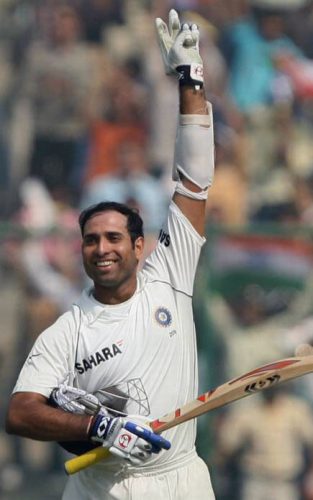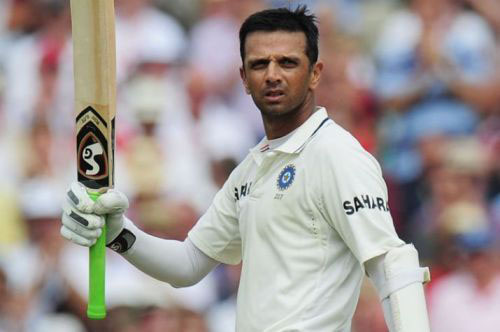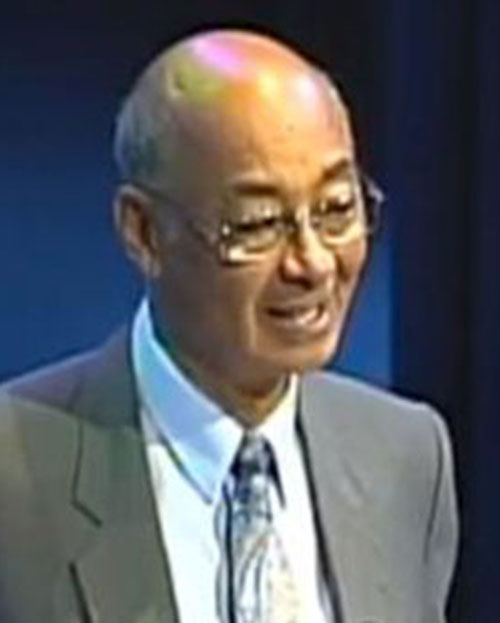I have often wondered why some athletes with great potential often disappoint, and why others with less physical ability and potential often exceed expectations and play really well. In the Sixties, when I was a medical student playing county cricket for Warwickshire, I spent a lot of time listening to the wise words of a former England player Tiger Smith who represented his country from 1911 to 1914. He often told me that there are two games of cricket. One is played on a large outfield and is visible to everyone and a second that is more important but less visible is played on a small area inside the head. Harmony is important and both games must be played well in order to get success on the field. He also said that in the Sixties, most of the players focused exclusively on the outer game. Consequently, little or no attention was paid to the more important head game. Six decades later, that observation still stands.

In the late Seventies and early Eighties, I was asked to work with Australian Rules football players and I got an opportunity to examine Tiger’s hypothesis. Australian Rules football is a rough, tough and extremely physical game that encompasses certain aspects of rugby, basketball and boxing. I informed the coaches that I knew absolutely nothing about the physical aspects, technical skills or the tactical and strategic requirements of the game, and that I had no desire to learn about them. My main aim was to see
how improving the players’ mental game would impact their performance on the field.
The request from the football clubs came soon after the West Indies team’s outstanding performance in World Series Cricket. Then, many of my friends referred to me as the “witch doctor” because they believed that I could get into people’s heads and influence their thinking and behaviour. I never attempted to correct that belief. Instead, I used it to my advantage in my dealings with the footballers.
To make my case about the importance of the head games I quoted basketball player Bill Russell who said: “The main difference between great teams and good teams is not physical skill, but mental toughness. That is, how well a team can keep its collective wits under pressure. Teams that can do this under the maximum pressure will win most of the time. Heart in champions has to do with the depth of their motivation and persistence, how well their minds and bodies react to pressure. It is concentration – that is being able to do the best under maximum stress, pain and fatigue.”
That is a general outline of what the inner game is about. It is a game that is constantly played in our heads but most of the time we are not aware of it. It is an interaction between our thoughts and feelings, our goals and fears. Without a good inner game it is very difficult to play a good outer game.

Improving the footballers’ head game by enhancing self-image and self-belief worked wonders on the football field. Getting rid of negative forces like self-doubts, mental and physical tension, lapses in concentration, anxiety, fear, indiscipline, low motivation, limiting beliefs and poor management of pressure also produced great results. Every aspect of the teams’ performance improved. In fact, during the last seven years that I spent in Australia the football teams with whom I worked won five of seven grand finals, the equivalent of the American Super Bowls.
The footballers soon learnt that they played many different head games depending on the challenges they faced. They also found out that those games were controlled by diverse motives and stimuli. Peter Thompson, five-time winner of the British Open golf championship often referred to the different head games that golfers play and the diverse motives that initiate and control them. He once told me: “High achievers in sport are sometimes desperate people crying out for love, recognition and public acclamation and it is at times sad to see them doing anything and everything to succeed. However, there are other motives such as winning or trying to make a living. I suppose the purest motive is to win for yourself and experience that quiet inner feeling of satisfaction and sense of achievement. That is the noble end. This motive seems to be the most powerful and keeps you
going longer but there comes a time when that too loses its power.”
Good concentration is one of the most important components of the head game. Although coaches and players talk a lot about the importance of concentration they hardly ever teach or control it adequately.
During the execution of a task, concentration is most productive when it is focused in the present on the right cues, for example the batsman watching the ball out of the bowler’s hand and judging its line and length. In competition, most mistakes in concentration are made when attention is focused in the past on previous mistakes and failures or in the future on the result or imaginary disappointments and failures. The present is the point of power. Most good players will tell you that they play best when they stay in the present and focus on the basics.
In truth and in fact, we become what we concentrate on, and in a real sense we are where our concentration is.
VVS Laxman the former Indian Test batsman summed up his understanding of concentration when he said: “In any sport you will at times lose concentration and be distracted by the opposition, the crowd, the way
you are batting, the score, and negative thoughts in your mind. As soon as you recognize these distractions you should immediately bring your attention back to the present and focus on the process.”
Laxman’s colleague, Rahul Dravid, reinforced his message: “Concentration in batting is the ability to play one ball at a time and not get too far ahead of yourself or get caught up in the past.”
Attention control is best achieved when the mind and body are calm, relaxed and alert; it is most inadequate when the mind and body are tense and tight. This is why the practice of meditation is so important.
Players and coaches must now rethink their methods and try to understand that they will inhibit potential and diminish performance if they continue to ignore the most important game in sport, the head game. That advice is equally important to sports administrators.





